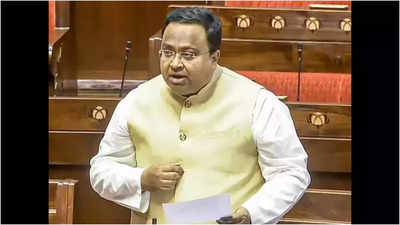
The Waqf Bill, introduced by Minority Affairs Minister Kiren Rijiju, proposes significant changes to the management of Muslim charitable endowments, known as waqfs. Key amendments include the inclusion of non-Muslim members on waqf boards and increased government oversight aimed at combating corruption and promoting diversity. Critics, however, argue that these measures could undermine Muslim rights and potentially lead to the confiscation of historic mosques and properties.
The BJD's initial opposition was based on concerns that the bill might infringe upon minority rights. Dr. Patra had previously stated that the party would oppose the bill due to unaddressed suggestions for changes in the original draft. However, the party's recent decision to allow a conscience vote reflects a nuanced approach, acknowledging the diverse sentiments within minority communities.
This development has implications for the bill's passage in the Rajya Sabha. The ruling Bharatiya Janata Party does not hold a majority in the Upper House and relies on support from allies and other parties. The BJD's seven seats could influence the outcome significantly.
The Waqf Bill has sparked extensive debate. Proponents argue that the inclusion of non-Muslims on waqf boards will enhance transparency and reduce mismanagement. Opponents, including various Muslim groups and opposition parties, contend that the bill is discriminatory and politically motivated, potentially enabling the government to seize properties lacking formal documentation.
In the Lok Sabha, the bill was passed with 288 votes in favour and 232 against. The Rajya Sabha's deliberation is crucial, as the BJP requires support from other parties to secure a majority. The BJD's decision to permit a conscience vote adds an element of unpredictability to the proceedings.
Other regional parties have also adopted similar stances. The Yuvajana Sramika Rythu Congress Party has chosen not to issue a whip, allowing its members to vote based on their judgment. This trend among regional parties indicates a shift towards individual decision-making on contentious issues.
The bill's provisions have raised concerns among India's Muslim population, which constitutes approximately 14% of the country's 1.4 billion people. Critics fear that increased government control over waqf properties could lead to the erosion of minority rights and the appropriation of significant cultural and religious sites.
